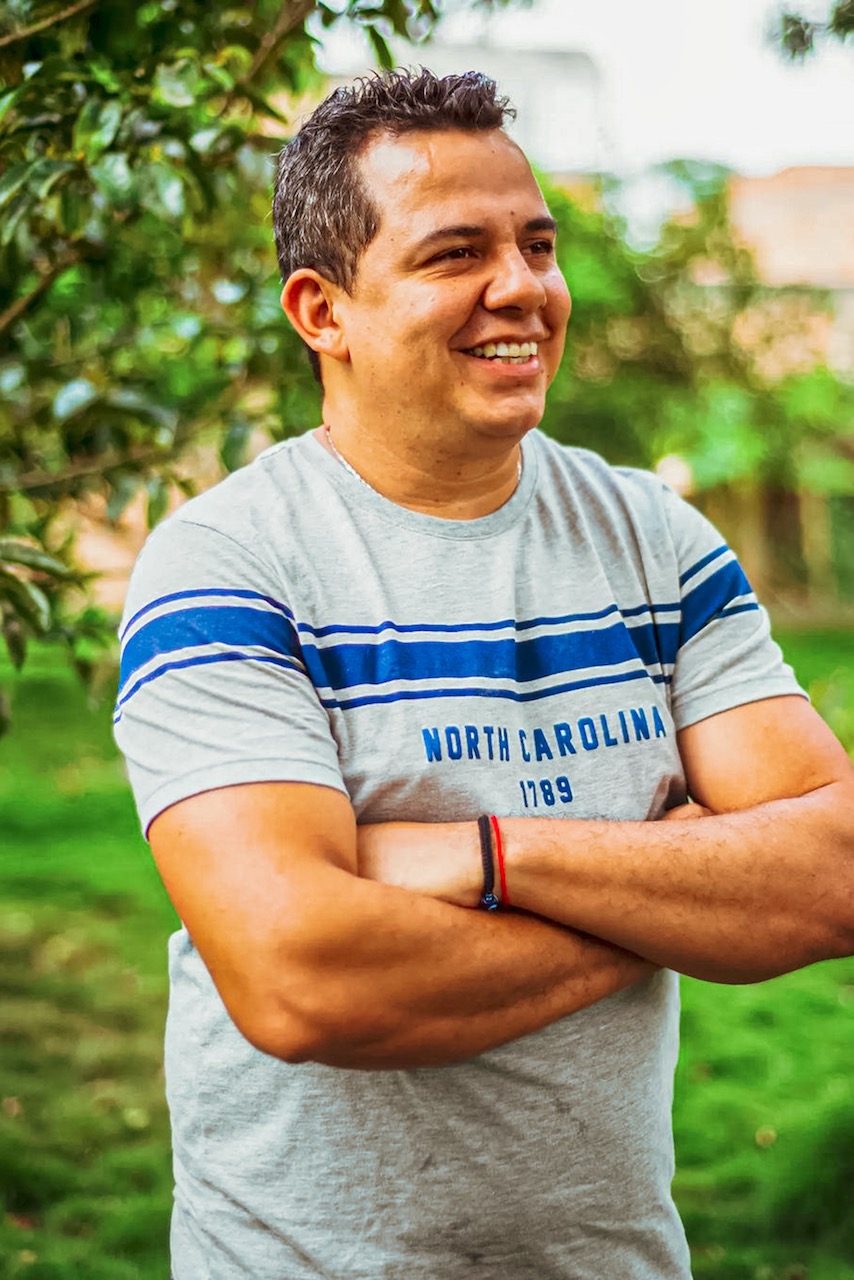
Making Difference by Being Different
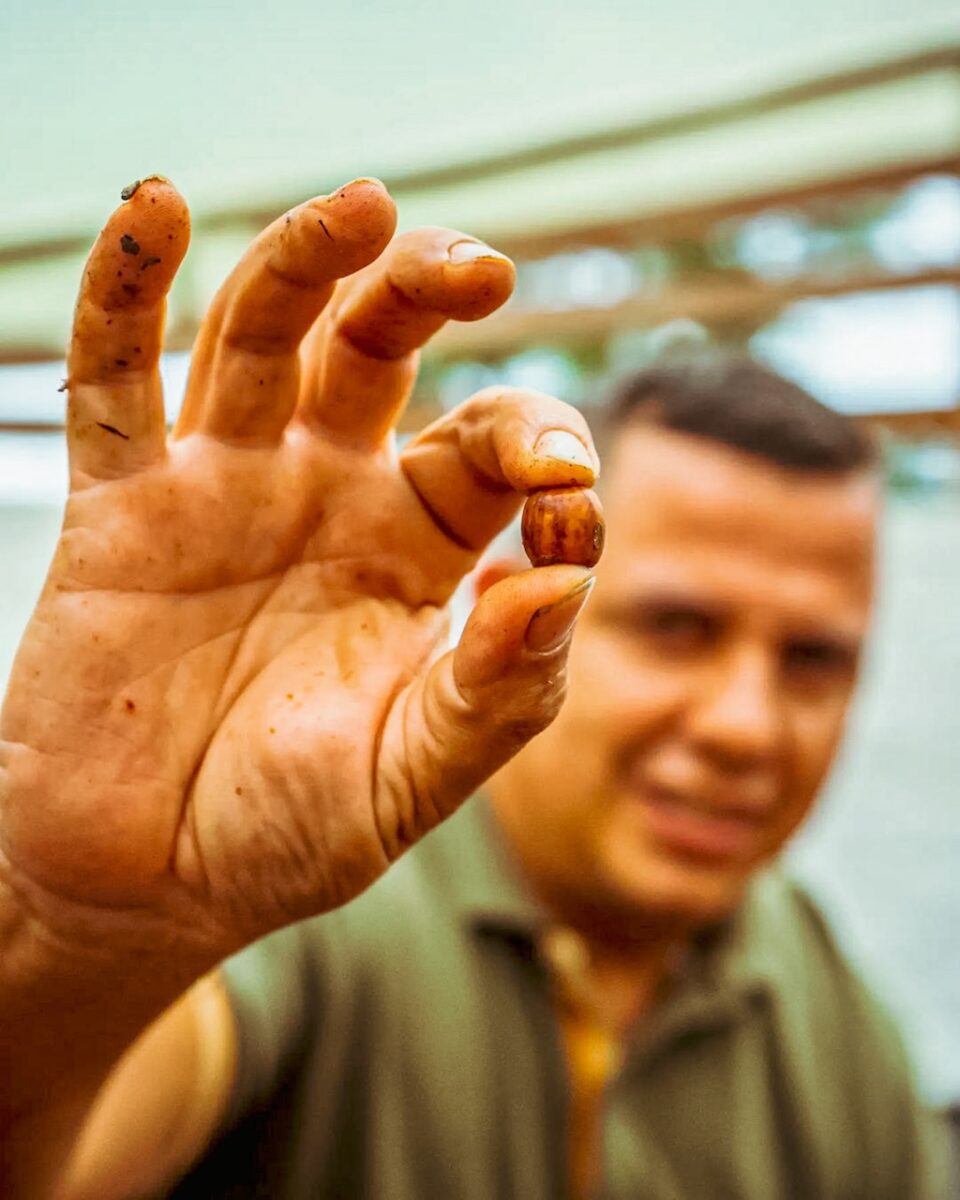
Pitalito is a town in the Department of Huila, southwest Colombia, and home to the Guzman family, who have been involved in coffee production for more than 70 years. Now in its third generation, the current head of the farm is Elkin Fernery Guzman, a renowned pioneer of coffee fermentation.
Elkin began his research into fermentation in 2005 and since then has gone on to create processing techniques that include carbonic maceration, lactic and acetic natural processes, and natural hydro honey. On the Guzman farm’s official Instagram account, Elkin receives questions and requests for advice from coffee producers in Africa, Indonesia, Singapore and all over the world.
Always aiming to stand at the forefront of the growing coffee industry, Elkin’s new venture is into the yet to be explored world of large-scale processing. We spoke to Elkin to find out what drives him to seek out new horizons.
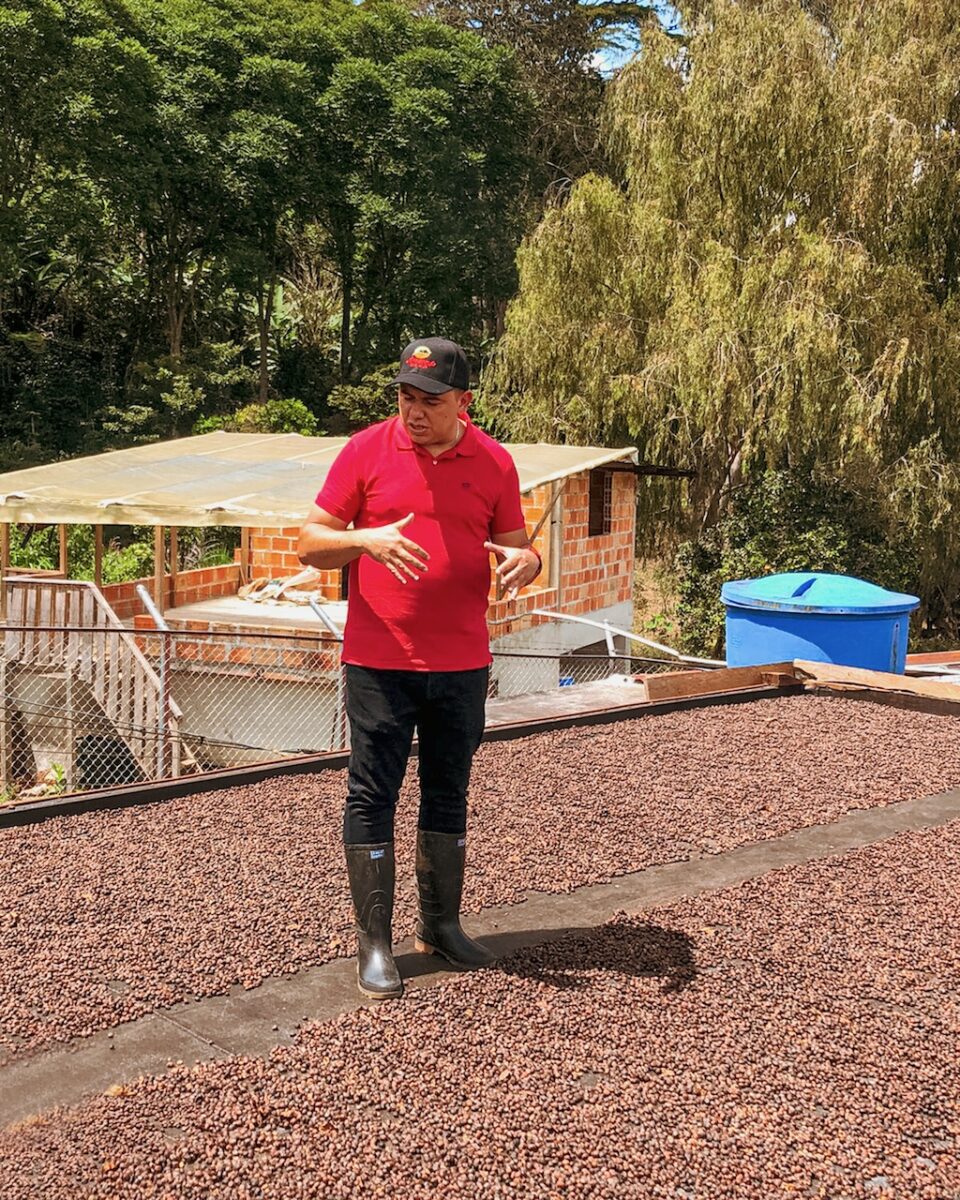
It starts and ends with a cup of coffee
It is hard for consumers enjoying a cup of coffee to visualize the environment that coffee is produced in. At the same time, it is also hard for coffee producers to imagine how their coffee is being enjoyed. Elkin has been trying to find a way to bridge this physical and emotional gap, to bring transparency to the relationship between the consumer and the producer.
“What we’re selling is a cup of coffee. Producers need to be interested in what happens to their coffee after the green beans leave the farm. We need to make sure that the people who drink our coffee buy it again, and keep on buying it in the long term.
If we’re more aware of the connection from the producer to the supplier, the roaster and then the cafe, we can work together to ensure the customer visiting the cafe becomes a regular, and tells their friends about it – word of mouth is a great tool. That will lead to more sales for the cafe and the roaster, and more demand for our product. It helps the whole supply chain grow and moves from a single sale to a loyal customer.
In other words, if there are no consumers at the end of the line, the industry cannot grow. It’s the consumers who are buying, drinking, and enjoying the coffee. That’s why it’s so important for producers to be interested in the coffee drinker enjoying that one cup of coffee.”
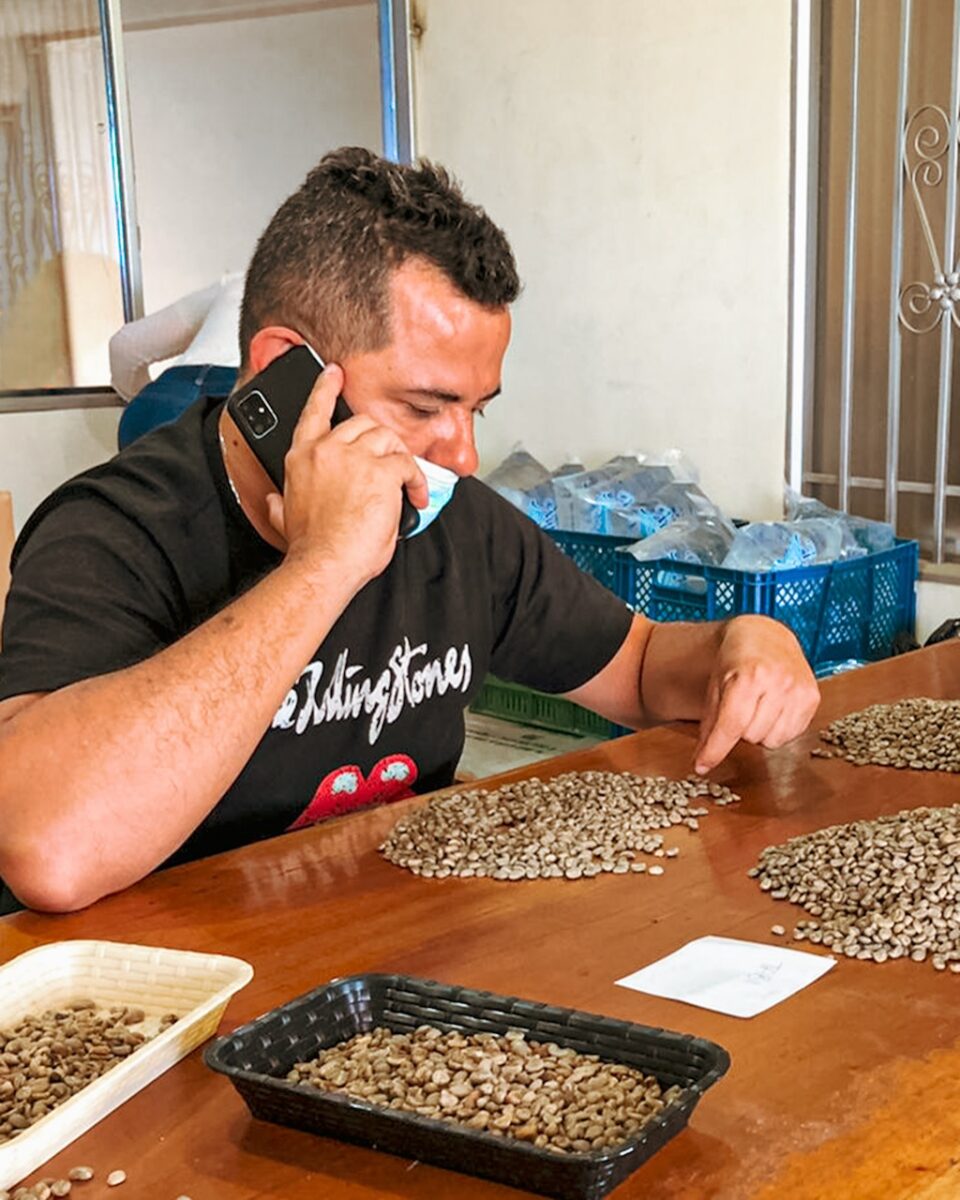
Feedback is a way to hear directly from the consumer, and naturally Elkin appreciates anything he gets. From America and Europe to Asia and the Middle East, each region has its own needs. Elkin is constantly developing new processing and fermentation techniques to try and meet the specific requirements of each country.
“Right now, we’re trying to find the optimal fermentation process to produce a superior quality coffee at a reasonable price, in a volume we can sell. The coffee industry is becoming more and more competitive and with it the demands made on it are more extreme. Coffee producers have to make practical and viable innovations, or risk getting left behind.
Our collaboration with Clearpath Coffee has provided a huge boost in that area. Getting feedback and information directly from customers via email and WhatsApp has shown us what we need to start doing. We make a great team and we’re supporting each other in a way that is mutually beneficial.”
Elkin continues to create techniques and knowledge that wow the customers, and is standardizing protocols to guarantee consistency in the coffee flavor and quality. For example, measuring the degree of sugar content in the coffee cherries. For Elkin, standardization is a way to move away from the preconception that delicious coffee can only be made in small quantities.
“We can’t leave quality up to luck. It needs to be based on consistent data collection and evaluation. We were able to create this new fermentation process because we continued to emphasize the importance of researching fermentation.”
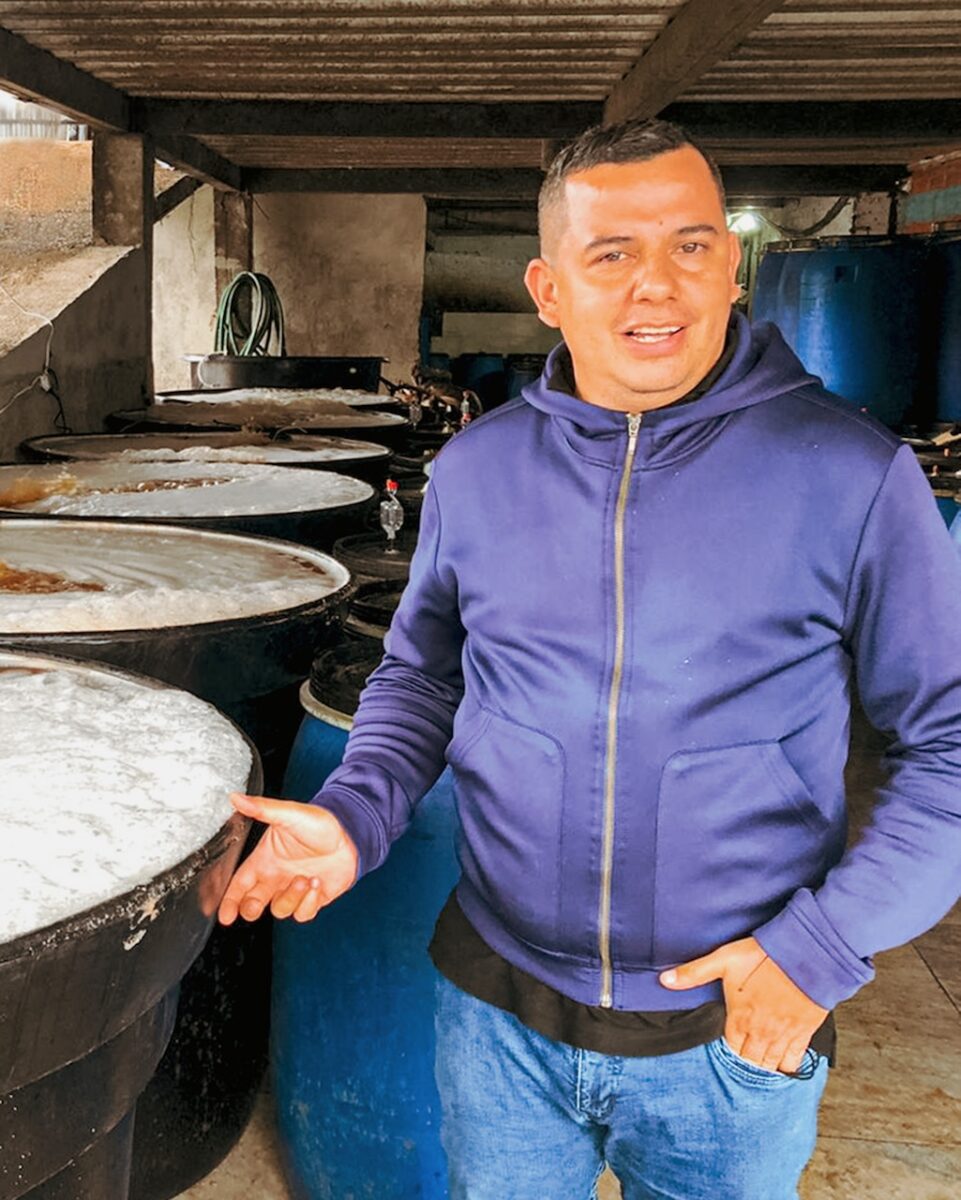
Discovering the secrets of fermentation
Working on the family farm shortly after graduating university, it was not long before Elkin understood the appeal of coffee production. Coffee trees are affected by the surrounding environment, temperature, humidity, amount of rain, harvesting technique, and so many uncontrollable elements. This results in differences between farms even in the same area. There are even varieties which, despite being processed under the same fermentation conditions, have a totally different profile. The more he learnt, the more Elkin wanted to investigate.
By researching microorganisms that change the sugar content of coffee, Elkin proposed that fermentation was a deciding factor in the flavor of coffee. In 2007, to prove his theory he began to research what was happening during fermentation, but no one was interested in fermentation back then. Whenever he spoke to people about his idea, he was met with blank, confused looks, as if he was an alien from another galaxy.
“Back then, I was disappointed to find that there were no producers who were willing to help me. I sensed a lot of jealousy and also apathy at the time. I’d ask coffee farmers about coffee production and they’d say ‘It’s a hard life, coffee farming,’ or ‘Don’t ask me!’ you know, nothing helpful.”
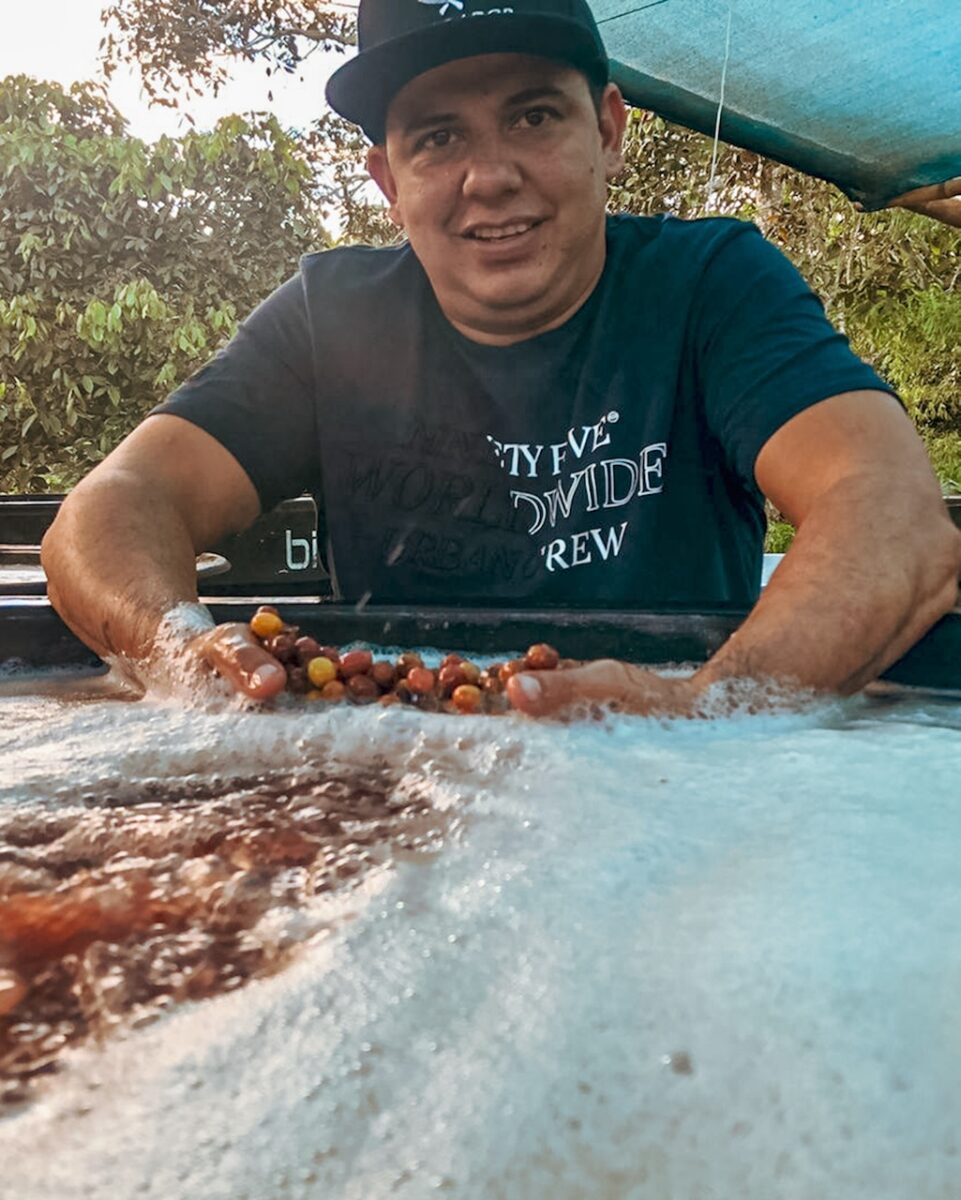
As of 2022, Colombia has both public and private institutions researching coffee fermentation. “This has made a huge difference to improving the quality of Colombian coffee and helping producers develop,” says Elkin. 15 years ago, there was no precedent, not even a trace of an interest in the subject. Yet Elkin trusted his instincts. He decided to invest his own money and take on the research himself.
Elkin wanted to illustrate the difference the fermentation process could have on quality. His experiment took the same variety of bean, grown and harvested under the same conditions, and fermented it for 90 hours, taking a sample every hour. Sampling started 12 hours after fermentation began and continued once an hour every hour until the process was complete. With the help of staff, it took four days to finish.
“The most significant, and for me personally, the most interesting result was that almost 80 of the samples had completely different profiles. It proved that the timing of the fermentation had a huge effect on the quality of the coffee. And I was really pleased that one of the samples scored 90 points.”
Spurred by the success of his experiment, Elkin began delving further into the world of fermentation, developing carbonic maceration, and lactic and acerbic natural processing, allowing him to choose the optimal fermentation process for each lot.
“I began to realize that I would have to do something unique to stand out as a producer to customers and in the industry. And customers are always looking for different processing techniques and profiles to help them stand out. The consumer’s needs are constantly changing, so we can’t stand still, we have to change too.”

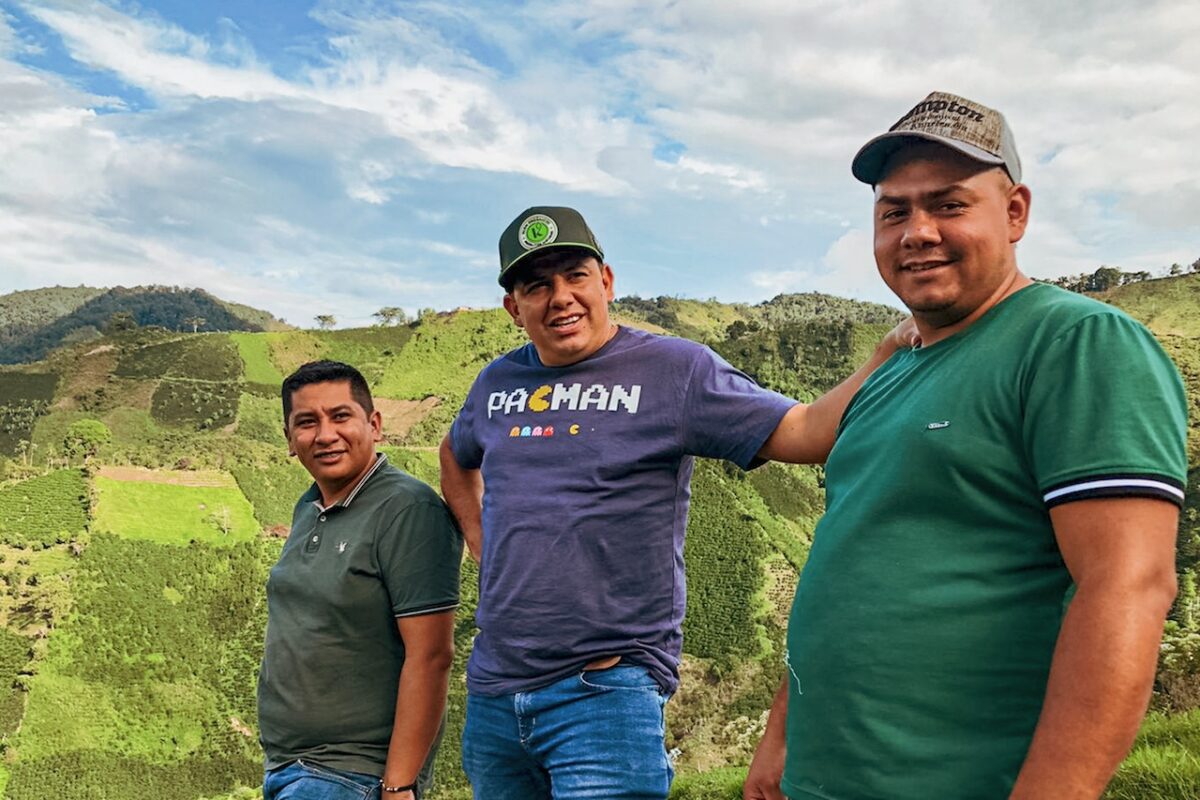
Success starts with believing in yourself
Elkin never had any intention to make this a sole victory. University taught him that “knowledge shared is knowledge gained” and Elkin always planned to be generous with his discoveries. Once he had seen some success, Elkin began putting that philosophy into practice by sharing his knowledge with young coffee producers in Colombia.
“A lot of these producers had grown up watching their parents struggle with coffee farms. Old-fashioned practices, low income, lack of profit, no customers… they came to the business with a negative image of the industry.”
Elkin let people know that if they wanted and were willing, they could come to his farm and learn. He was offering the young producers a kind of mini-internship. The young producers would live and work on Elkin’s farm for a week, getting hands on learning while Elkin shared his knowledge and experience. A week might seem short, but it is more than enough to change the way of thinking and the mindset of the participants.
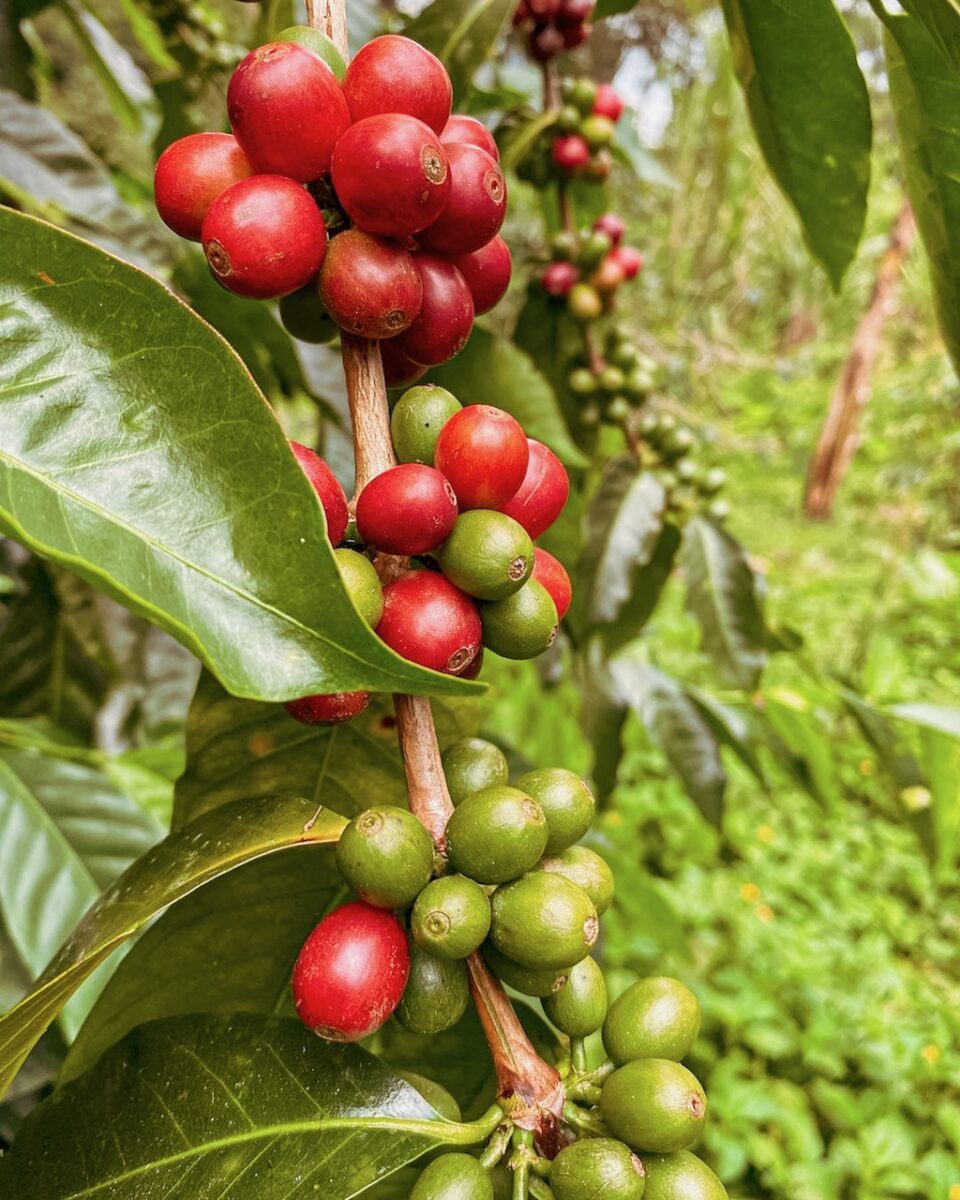
“My farm is in the same region as theirs and we are growing the same variety. Sharing my processes shows them that they don’t need to invest in fancy new equipment. Quality is all down to how you approach your work and how you think about it. I tell them, “If you don’t believe in yourself, you’ll never succeed.” It’s something my own experiences taught me and it’s a valuable life lesson.”
Elkin also teaches them about the importance of maintaining the quality when the market price is up, something that often gets sacrificed. The global market for coffee is highly volatile, and many producers work on the idea of trying to make as much money as they can when the market is up. This leads to harvesting as quickly as possible, and trying to get rid of the goods as soon as the can.
“I tell the young producers who come to my farm that they need to be consistent in the quality of the coffee they sell. If the price is high, that’s when they should be doing their best work. If the price is low, they can be looking at where to make improvements. I want them to understand the necessity of thinking in the mid to long term, and not being at the mercy of market prices.”
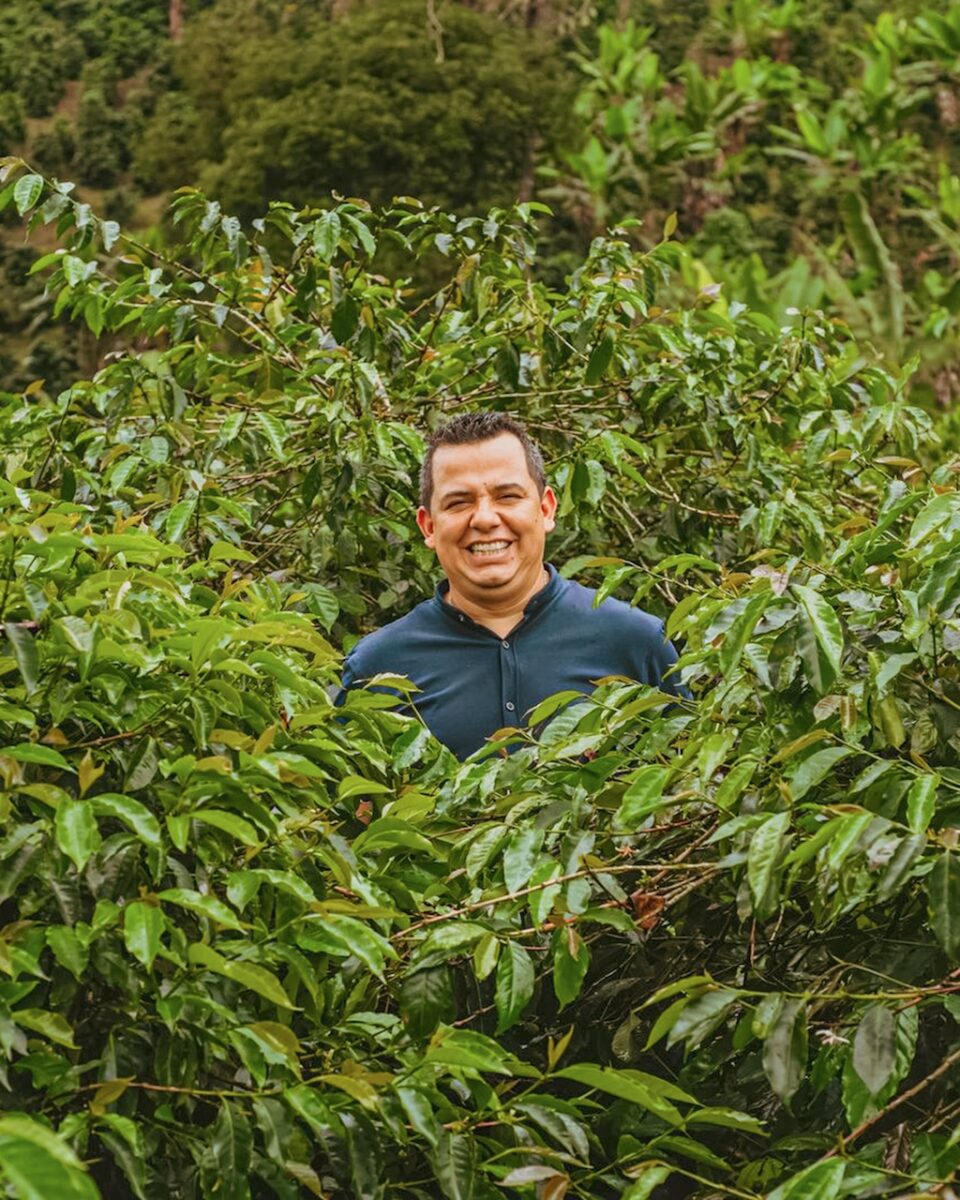
Trailblazing to the next horizon
Amongst the coffee producers that Elkin took in, one went on to win a specialty coffee contest, another has successfully raised their prices, and yet another has gained a customer.
“There’s an increase in producers who believe that there is a future in coffee. It makes it easier to give up the stage to the next generation.”
As Elkin’s reputation grows, the farm’s Instagram account is flooded with requests for advice and questions from coffee producers in Africa, Indonesia, Singapore and all over the world.
“We get to see how the techniques we’ve developed are applied and adapted to the specific conditions of each country. People are grateful for our advice because it has helped improve the quality of their coffee. It makes me happy to think that challenging those preconceptions has led to their success.”
In 2016, Elkin was chosen by the world-renowned coffee publisher, Sprudge, as the Notable Coffee Producer of the year. Yet despite becoming one of the more recognizable names in the industry, Elkin does not take his success for granted. He knows that there are many producers who entered the market with him in 2004, and have since disappeared without a trace.
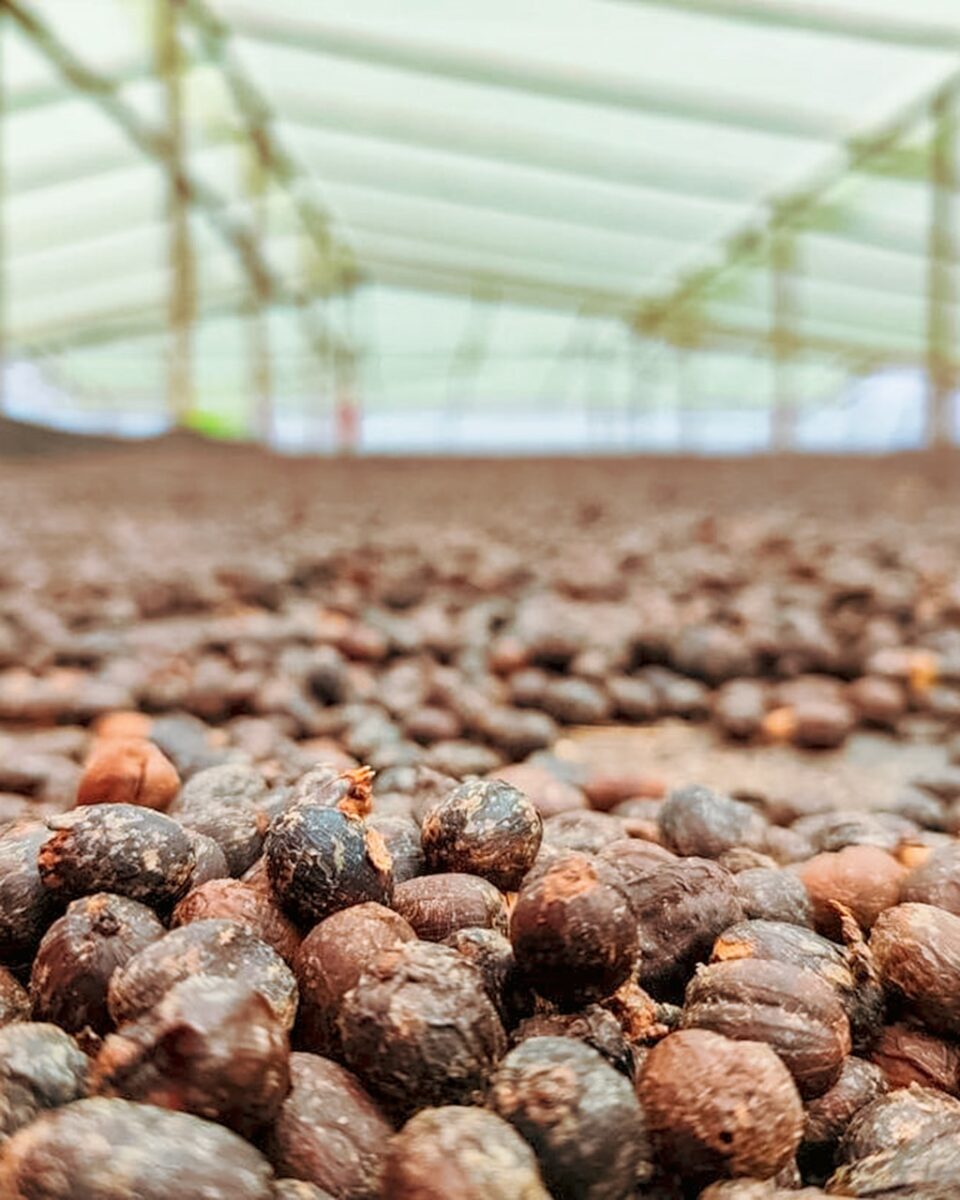
“Work locally, think globally” is Elkin’s motto. Currently he is collaborating with a company to develop technology for large-scale processing.
“Processing 10 to 30 tons in one go while achieving consistently high quality is a totally new challenge. We need to think about maintaining good hygiene practices, the drying, the packaging, the shelf life, quality over time, and much more to achieve quality consistency.”
It is said that the Wright brothers were able to fly because they accepted that the sky was unstable, and that the secret to successful flight was down to controlling the aircraft, not the heavens. Coffee is consumed in countries all over the world, each with their own culture, taste, needs – and these are constantly changing. The secret, Elkin has discovered, is to accept these differences, and to innovate where you can to take hold of the controls that will fly you on to the next new horizon.
“Compared to beer or wine or cheese which have had a hundred, or even a thousand years to develop their processing techniques, coffee has only had twenty or thirty. It is a relatively new industry with room to develop and advance. That’s why it’s important to be doing something different, to always be looking for ways to improve and optimize.
People in the industry are not my competition. I am my only competition. I want to demand more of myself every day to create better products, and share with our friends and our customers. Because in the end, the only person who can make a difference is me.”
Originally written in Japanese by Tatsuya Nakamichi
The featured and full-width images: Elkin’s Instagram.








